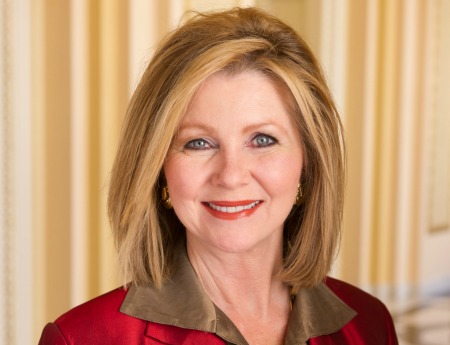D.C. Weighs in on SOTU

The smarter way to stay on top of broadcasting and cable industry. Sign up below
You are now subscribed
Your newsletter sign-up was successful
Washington was quick to respond to the State of the Union speech Tuesday night.
The President mentioned, but did not talk at any length, about cybersecurity, privacy, an open Internet and high-speed broadband.
Veteran Energy & Commerce Committee member Marsha Blackburn (R-Tenn.) took issue with the President's privacy initiatives, which were outlined last week.
“The President talks about his initiatives to protect personal data online and yet today we learned from the Associated Press that data firms may be tracking people as they use healthcare.gov," she said. "Depending on technology, they may be able to determine age, income, zip code, and whether you smoke or are pregnant. These findings raise new privacy and cyber security concerns. If President Obama can’t protect data on healthcare.gov then why should we trust him to lead us on other cyber and privacy issues?”
"Tonight, President Obama made it clear in the State of the Union Address that securing our nation’s cyberspace for businesses, public networks and consumers is a top priority," said Chris Dodd, chairman of the Motion Picture Association of America.
"The Internet is a flourishing source for creativity and economic growth. And yet, as the devastating cyberattack against Sony Pictures Entertainment reminds us, this incredible and connected digital space is also littered with sophisticated criminal actors intent on unsettling businesses, invading consumer privacy, and exposing competitive trade secrets and digital products.
We fully support the President’s commitment to addressing this pressing issue and look forward to working alongside the Administration, Congress and all members of the online ecosystem to strengthen and secure the Internet for everyone.”
The smarter way to stay on top of broadcasting and cable industry. Sign up below
Interviewed by CNN after the speech, Sen. Chuck Schumer (D-N.Y.) said cybersecurity might be one issue both sides could get together on. He suggested that Republicans had opposed legislation in the last Congress because big business did not want it, but that the Sony hack may changed that.
The Telecommunications Industry Association applauded the President's high-speed broadband efforts and cybersecurity, but "strongly opposed" the President’s call to reclassify the Internet as a public utility.
“We commend the president for seeking to make broadband more readily available, which will strengthen our nation. Encouraging competition among providers, including municipalities, is essential to making this work. The President’s focus on cybersecurity recognizes that this is a vital concern for American businesses. New regulations won’t stop cyberattacks, but real progress can be made by improving information sharing and giving the private sector better weapons."
“We welcome the president’s renewed commitment tonight to improve and invest in cybersecurity and look forward to learning more about his proposal," said Information Technology Industry Council president Dean Garfield. "The tech sector is constantly investing and working to offer the online world the tools needed to protect and defend the networks we rely upon. Given our reliance on technology and the fact that incidents will happen —whether from sophisticated attacks or other causes— it’s imperative that we elevate cybersecurity to more than an after-thought because it is a critical component in today’s world.”
Rep. Fred Upton (R-Mich.) did not get into any of the policy issues, but joined the President in saying he wanted both parties to come together to get things done.
“We have to come together and tackle the issues that are most important to the American people. We have a great opportunity before us this Congress to make a positive and lasting difference," he said. "More life-saving cures, more affordable energy, and more innovation and jobs are all part of our vision for a better America. It's time to get to work, Republicans and Democrats together, and get the job done.”
Contributing editor John Eggerton has been an editor and/or writer on media regulation, legislation and policy for over four decades, including covering the FCC, FTC, Congress, the major media trade associations, and the federal courts. In addition to Multichannel News and Broadcasting + Cable, his work has appeared in Radio World, TV Technology, TV Fax, This Week in Consumer Electronics, Variety and the Encyclopedia Britannica.

